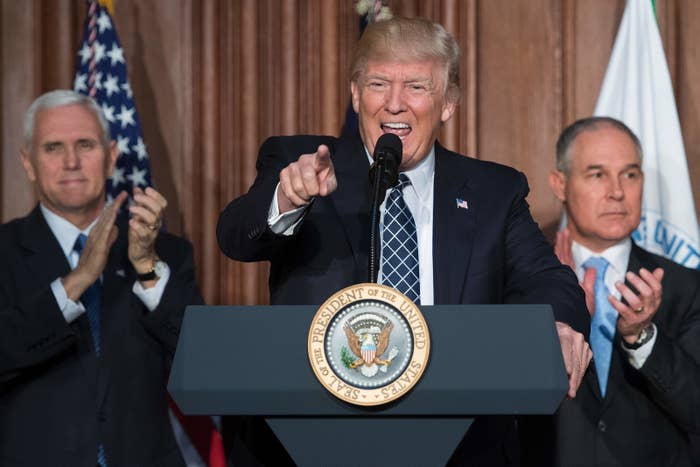
WASHINGTON — After their first shot at repealing Obamacare fell apart two weeks ago, Republicans are holding another flurry of meetings to try to complete a plan that the party can unify behind. The new, still in-progress, health care bill could open the door to insurance companies charging higher rates to people with pre-existing conditions.
A cross section of Republicans representing the feuding factions of the party held a negotiating meeting attended by Vice President Mike Pence Tuesday evening, but emerged without reaching a deal. They plan to meet again Wednesday.
Republicans had hoped to get a bill to the floor of the House this week. If they fail to meet that soft deadline they will have to wait as Congress goes on a two-week break, sending GOP members who vowed to repeal and replace Obamacare back home to face their constituents. When they return, they’ll have four days to pass a bill to keep the government from shutting down and other issues like tax reform fighting for front-burner attention.
But after Tuesday's meeting Majority Leader Kevin McCarthy said it was doubtful that the party can bring a bill to the House floor by Friday. "I think that it's difficult to finish one by the end of the week," he said.
Nonetheless, several Republicans are expressing optimism that they will get a deal on health care done.
They still need to resolve at least two two key issues that led to the implosion of the last health care bill. On one of those issues, the party disagrees. On the other they agree, but with different interpretations of what that agreement means.
The most significant change being debated is repealing Obamacare’s ban on insurance companies charging sick people more than healthy people. This was a key part of President Obama’s promise to stop insurance companies from denying coverage to people with pre-existing conditions, a policy Republicans have repeatedly vowed to maintain. Under the change, insurers would still have to cover those with pre-existing conditions but could charge them more for coverage.
But conservative hardliners are also pushing to repeal something called community ratings, which mandate that people of the same age who live in the same place must be charged the same price. Under community ratings, insurers calculate how much it costs to insure people as an overall group. Without them, insurers charge people as individuals and people with pre-existing conditions can face much higher costs as well.
Hardline conservatives and moderates are currently battling it out over these rules. The Freedom Caucus wants to give the states the right to waive community ratings, while moderates are pushing back to preserve them.
Rep. Chris Collins, a member of the moderate Tuesday Group and President Trump’s liaison to Congress, said many members do not want community ratings to switch from mandatory to optional.
“We’ll see how the discussion goes. As a betting person, I think they stay [untouched],” he said.
Both the Freedom Caucus and Tuesday Group met with Vice President Mike Pence and other White House officials Monday. Freedom Caucus chairman Mark Meadows said removing community ratings was not promised by Pence, but “there’s been solid discussions of potential options.”
One area Republicans do seem to have reached an agreement on was one of the major sticking points that killed the last GOP health care bill — what to do about essential health benefits, or the basic things health insurance plans have to cover. The problem now is, Republicans just don’t agree on what their agreement is.
Obamacare’s essential health benefits mandate that all insurance plans must cover 10 basic needs, which include things like maternity costs and childcare and addiction treatment. Moderate Republicans like them, while more conservative members want them repealed, which would open the door to insurance companies offering cheaper, but less comprehensive plans.
Moderates were unhappy with a previous compromise that allowed states to opt out of essential health benefits. So the new, tweaked proposal is that states can apply for a waiver and opt out only under certain conditions approved by the Department of Health and Human Services, according to Collins. Under this system states would have to prove their alternative plans will improve coverage and reduce costs before receiving a waiver.
But Freedom Caucus member Rep. Steve Womack said Pence told his group that waivers would be “more-than-likely be granted if a request is made.”
“From what I understand there would be amendment language that would set up this waiver system, and then when the waivers were requested the Trump administration would judge them in a favorable light,” said Womack.
Regardless of whether the waivers are strictly enforced or a mere formality, Womack said he still cannot support the bill because future administrations could be more stingy.
“In my judgment it is wrong to require the states to come to Washington, D.C. on bended knee to request insurance policy requirements that are best for that state’s citizens,” he said.
